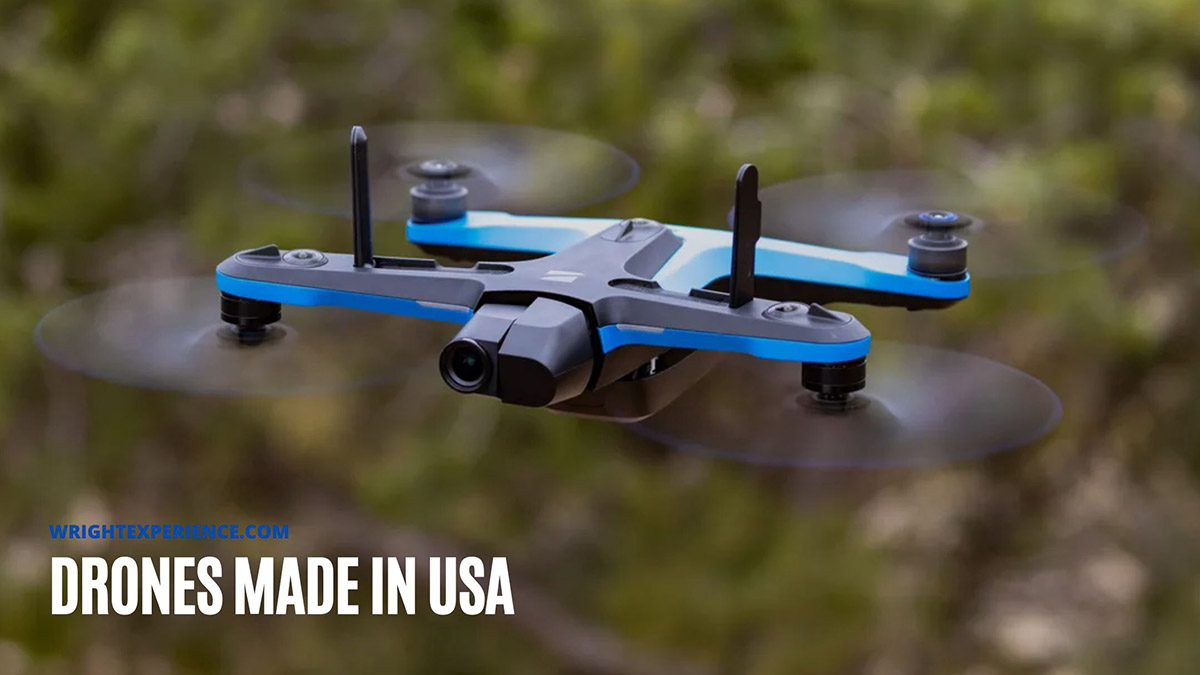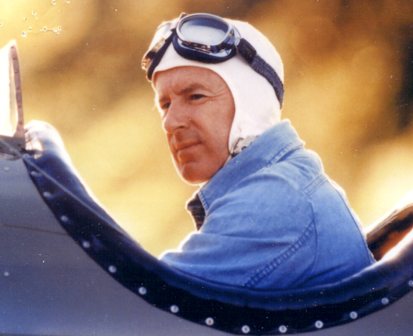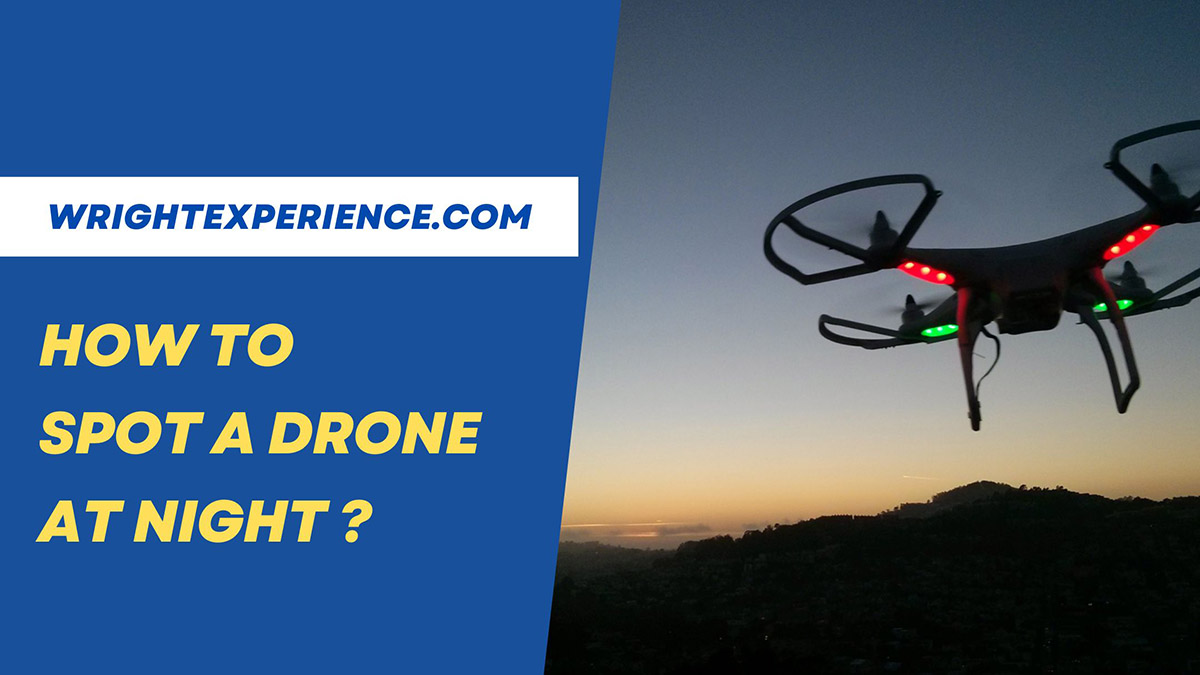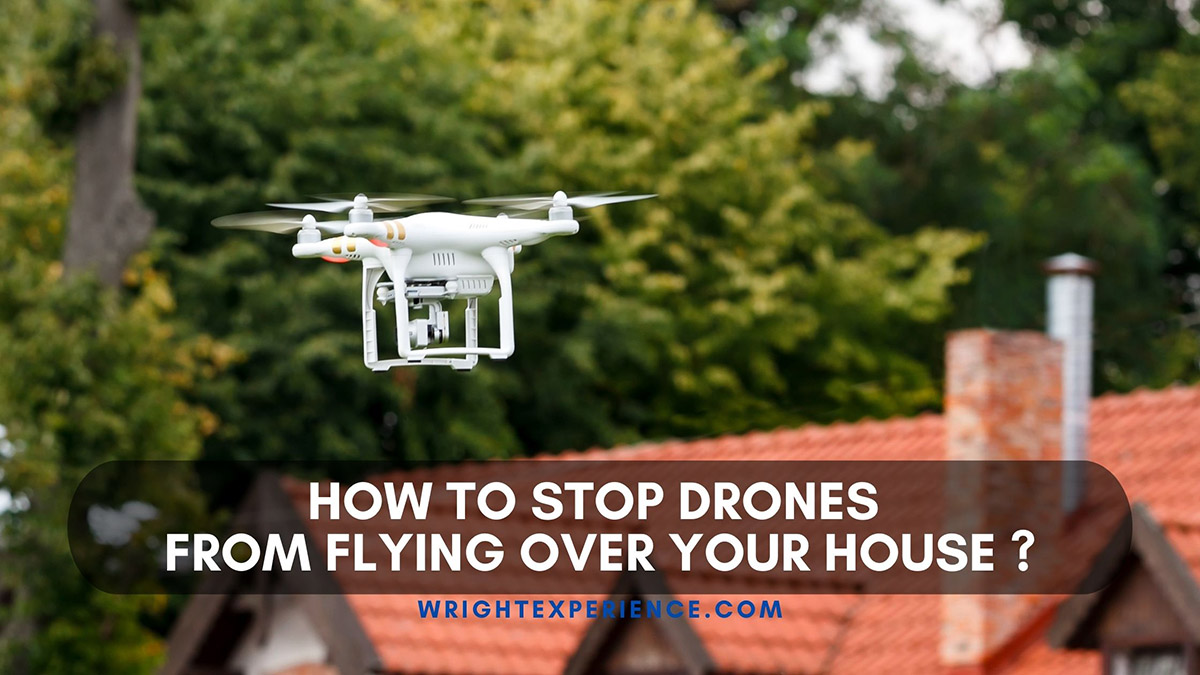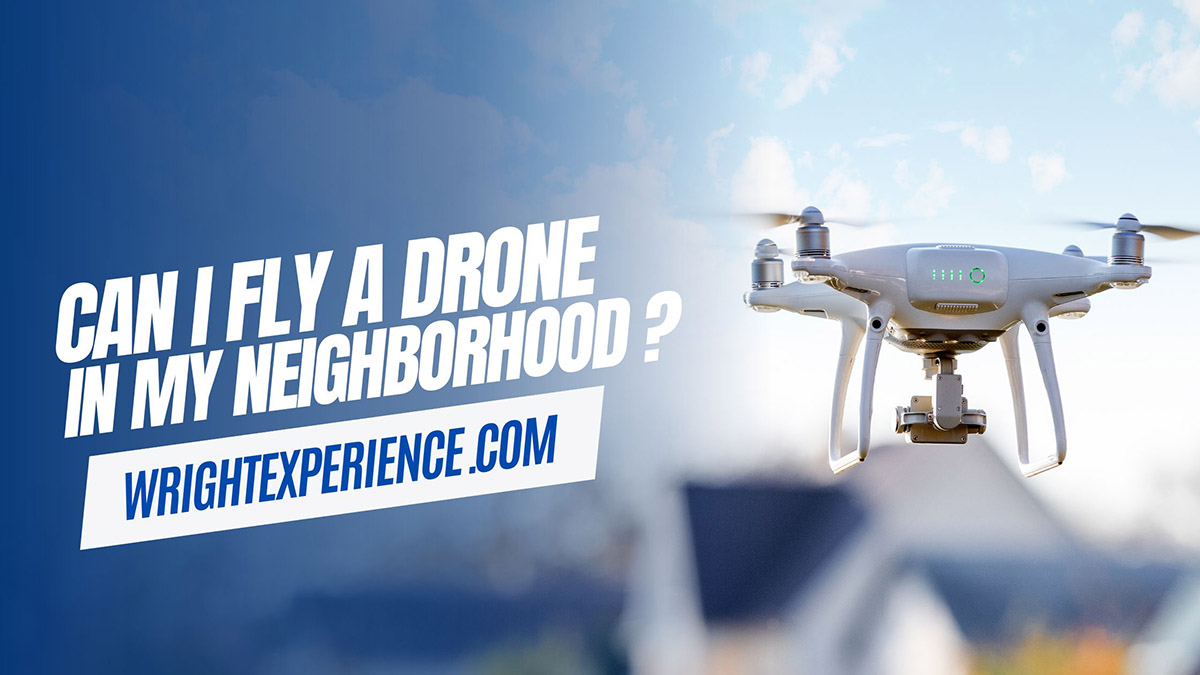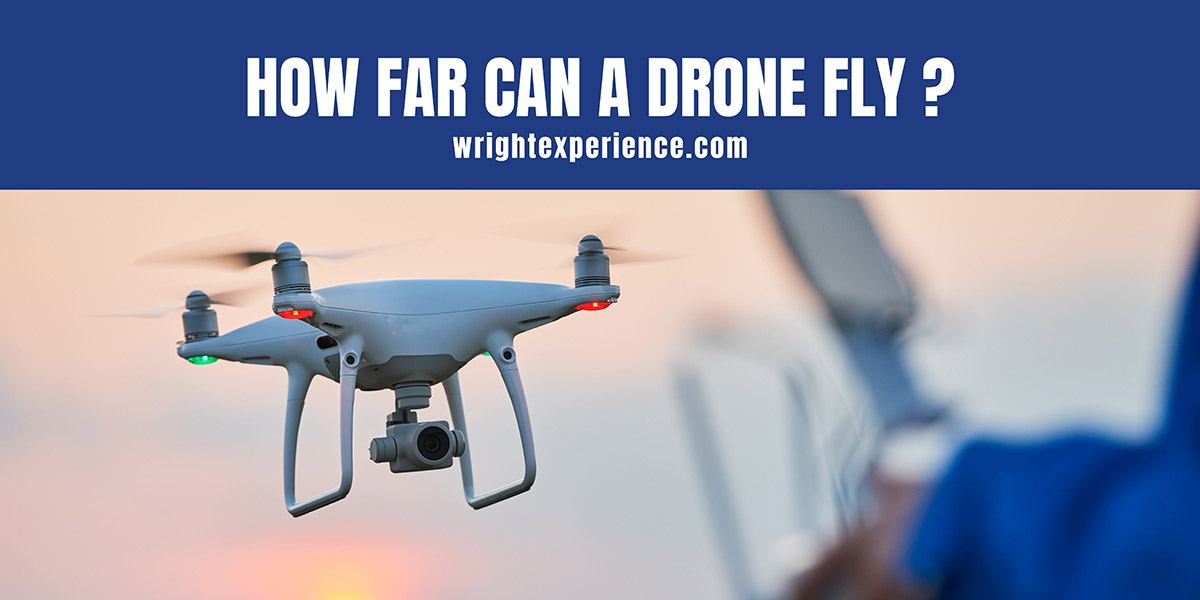Do you want to learn more about the top drone brands, the latest features, and the best models in the USA for every budget? If so, you’ve come to the right place!
With a wealth of experience in aviation, we have tested and compiled a list of the best American-made drones. We’ll cover everything from the basics of drone technology to the most advanced features on the market.
In this article:
Why Should You Consider American-Manufactured Drones?
Having had the privilege of using and reviewing an extensive array of drones from various brands and manufacturers at The Wright Experience, we’ve come to value the quality and reliability of American-manufactured drones.
- Quality and Reliability: American-made models are celebrated for their top-notch quality and reliability. Crafted with premium materials and subjected to stringent quality control, they’re built to withstand daily use.
- Innovation: American companies are pioneers in drone technology, consistently introducing cutting-edge features like enhanced cameras and extended flight times. Choosing an American-made drone ensures access to the latest innovations.
- Customer Support: American drone manufacturers typically offer exceptional customer support, ensuring prompt assistance for any issues you may encounter.
- Supporting American Jobs: Investing in drones manufactured in the USA directly contributes to job opportunities in the US, playing a vital role in the nation’s economy.
- Security and Privacy: They adhere to US export control laws, guaranteeing the protection of your drone data.
Top 10 Models Of Drones Made In The USA
We have tested many drones at The Wright Experience and picked the 10 best ones that are manufactured in America for your reference.
1. Autel Robotics EVO II Pro 6K RTK Rugged Bundle V3
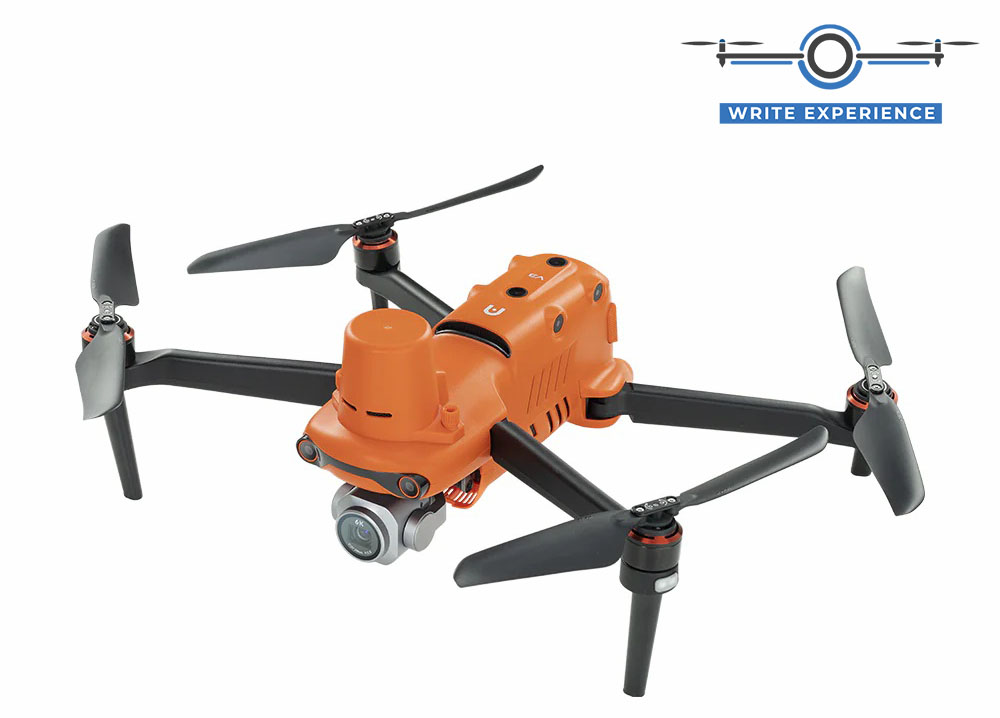
Autel Robotics’ EVO II has earned its place as a notable player in the consumer drone market thanks to its high-quality footage and a 360-degree obstacle avoidance system for easy navigation.
| Features | |
| Dimensions (unfolded) | 457 x 558 x 143mm |
| Maximum gross takeoff weight | 1999 g |
| Max flight range | 21 km (~13 miles) |
| Flight time | Up to 36 minutes (32 minutes of hovering) |
| Battery type | LiPo 3S 7100 mAh |
| Camera sensor | 1 inch CMOS; 20M pixels |
| Resolution | 1080p/60fps |
Pros
- High-quality camera with 1080p/60fps video recording
- Obstacle avoidance system with 360-degree coverage
- Follow-me mode that can track and follow subjects automatically
- Long flight time of up to 36 minutes
- Portable and lightweight design
- Affordable price
Cons
- Some users have reported that the obstacle avoidance system can be overly sensitive
- The follow-me mode is not perfect and can sometimes lose track of the subject
- The app can be buggy at times
- The remote controller is not as ergonomic as some other drones on the market
2. Skydio 2+
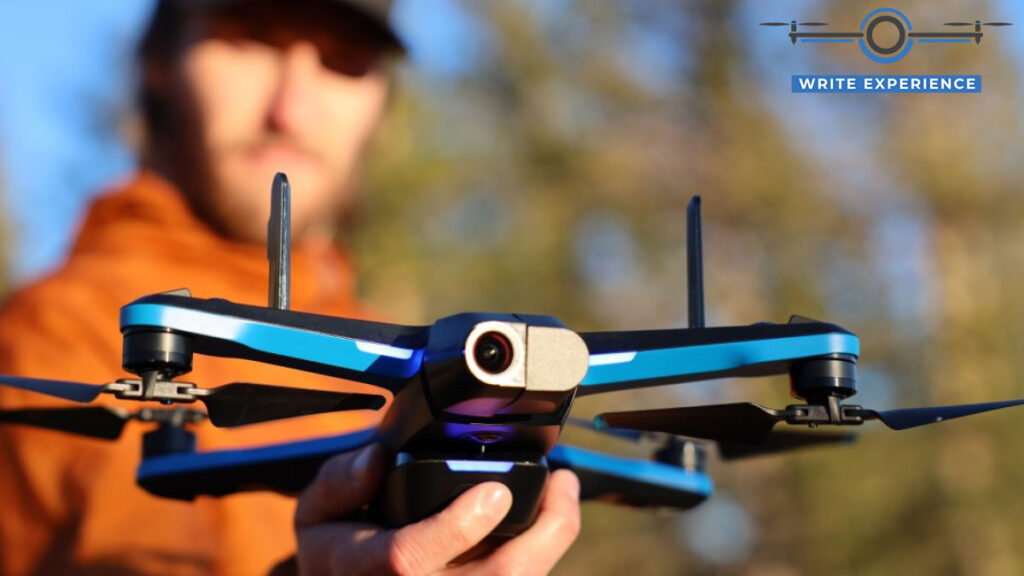
The Skydio 2, developed by Skydio, is an AI-powered drone renowned for its cutting-edge obstacle avoidance technology and its ability to navigate complex environments with precision.
| Feature | |
| Dimensions (unfolded) | 229 x 274 x 126 mm |
| Maximum gross takeoff weight | 800 g |
| Flight time | Up to 27 minutes |
| Flight range | 6 km (~3.7 miles) |
| Flight Speed | 36 mph |
| Battery type | LiPo 5410 mAh |
| Camera sensor | 1/2.3 inch CMOS |
| Resolution | 4K60 HDR videos and 12 MP photos |
Pros
- The NVIDIA Tegra TX2 AI computing device controls the autonomous drone efficiently and quickly
- Advanced autonomous features, including subject tracking and obstacle avoidance
- 6 200-degree navigation cameras with 4k quality
- Able to work in GPS-denied areas
- 6.8-inch touchscreen with military-grade components for easy control
Cons
- The autonomous features can be glitchy at times, especially in complex environments.
- The camera is not as good as some other drones in low-light conditions.
- The battery life could be better.
3. Freefly Alta X
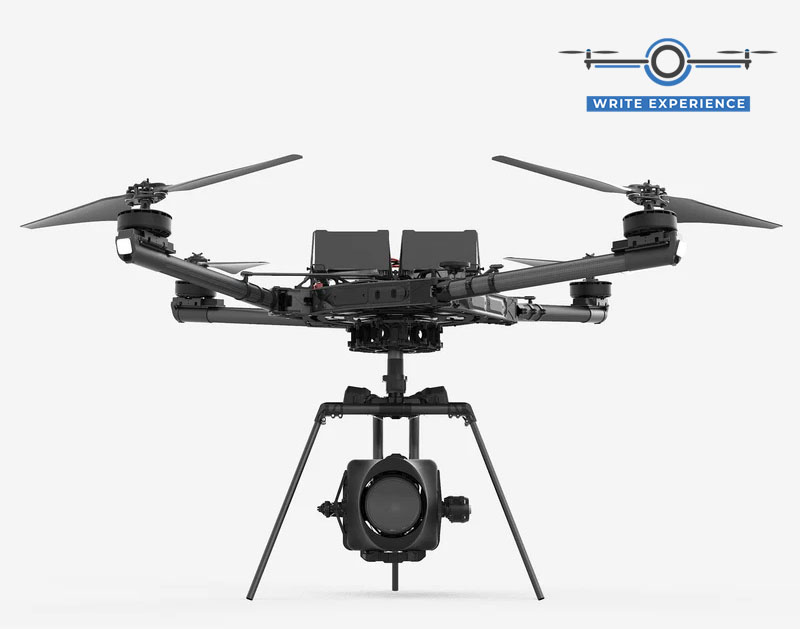
The Freefly Alta X, designed and produced by Freefly Systems, is a standout choice in the realm of professional and commercial drones, being the toughest drone that can carry heavy loads for an extended time.
| Features | |
| Diameter (unfolded) | 1415 mm |
| Maximum gross takeoff weight | 34.86 kg |
| Maximum payload | 15.06 kg |
| Flight time | Up to 50 minutes without payload35 minutes with a mapping camera30 minutes with Phoenix LiDAR22 minutes with Movi CARBON |
| Max speed | 60 mph |
| Battery | 5V, 12V DC to DC converters |
| Camera | LiDAR, mapping camera, Mōvi Carbon, or high-speed camera |
| Resolution | 4k/1000 fps |
Pros
- Can fly at high speeds and capture high-quality footage
- 4 types of cameras allow for navigation, mapping, and capturing footage
- Cinema-grade LED light to increase the resolution
- Great payload capacity without sacrificing much flight time
- Ready to use out of the box
Cons
- A bit heavy and bulky when unfolded
- Quite expensive
4. Sony ARS-S1: Airpeak S1
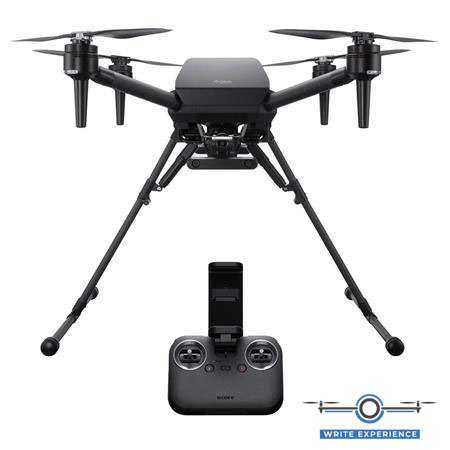
Kespry 2.0 is a dedicated solution for professionals in the field of industrial surveying and mapping, coming in an incredibly small size with a mirrorless camera.
| Feature | |
| Dimensions | 540 x 594 x 514 mm |
| Weight | 3.14 kg |
| Flight time | 30 minutes without payload (LBP-HM1 battery)22 minutes without payload (LBP-HS1 battery) |
| Maximum flight speed | 55.9 mph |
| Battery type | LBP-HM1 or LBP-HS1 |
| Camera | Alpha series full-frame mirrorless |
Pros
- Can automatically return to the home point in case of a low battery or lost signal
- Compact and lightweight
- High-resolution camera
- Airpeak Base app available for designing flight plans
- Repeat flight mode can recreate the previous flight path
Cons
- Quite hard to pair the drone with its controller
- The controller is rather large
5. WingtraOne
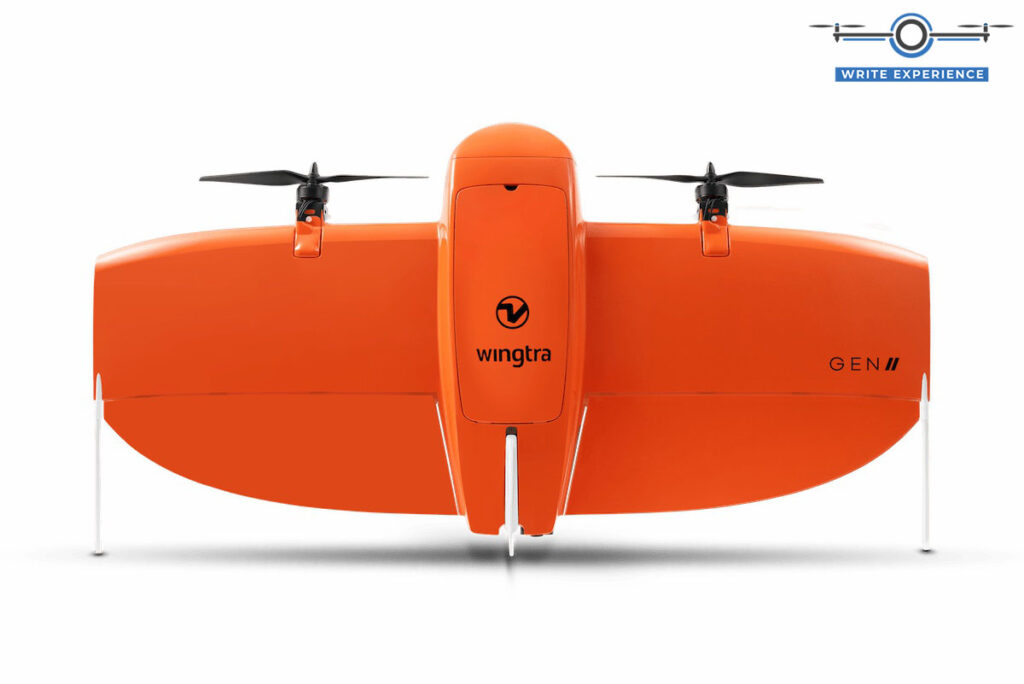
WingtraOne is the fastest mapping drone you can find. It can map a 1,200-ha industrial complex in just 3 days, 11 times faster than multi-copter drones and 2 times faster than fixed-wing ones.
| Feature | |
| Dimensions (unfolded, with props) | 1250 × 680 × 120 mm |
| Maximum gross takeoff weight | 4.5 kg |
| Maximum payload | 800 g |
| Maximum flight range | 3 km (~1.9 miles) |
| Flight time | Up to 59 minutes |
| Maximum flight range | 22 km (~14 miles) |
| Maximum flight speed | 36 mph |
| Battery type | Li-ion, UN3481 compliant |
| Cameras | Oblique Sony a6100, Sony RX1R II, RGB61 |
| Resolution | 61 MP photos |
Pros
- Only requires 5 minutes to set up the drone
- Autonomous flight with real-time monitoring
- Collect data quickly for faster mapping
- High-resolution camera with 0.1 cm absolute accuracy
- Long flight time
- Work safely and reliably in the wind
- Durable (continuously tested in 6 years and 100,000+ flights)
Cons
- Can’t carry heavy loads
- Not many applications (mostly for mapping)
6. Lockheed Martin Indago 3
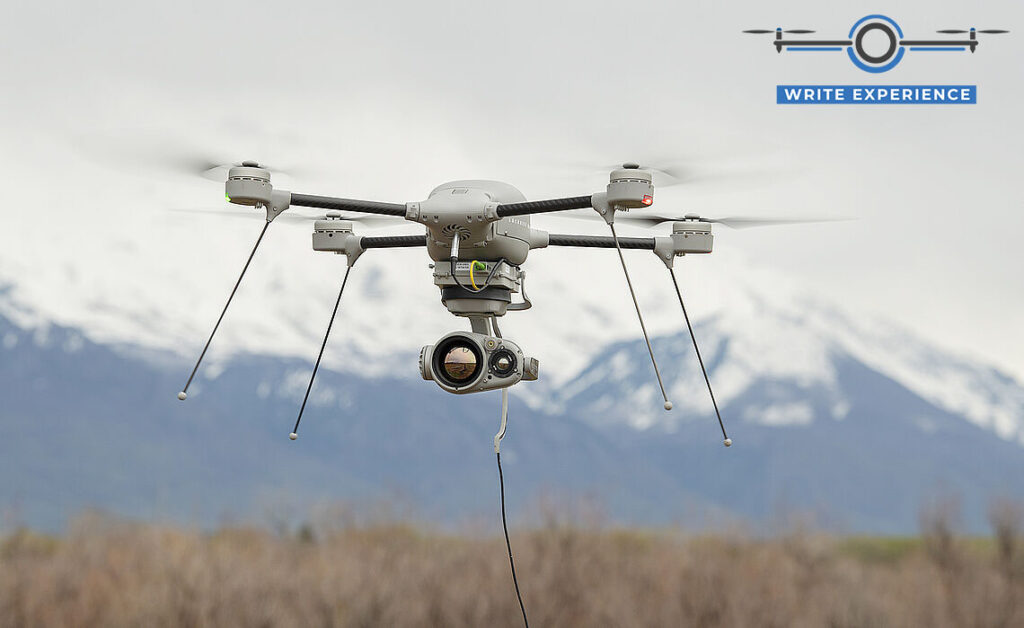
The Indago 3 is a small, man-portable UAV that is designed for ISR and surveillance missions. It can fly for up to 50 minutes and can carry a variety of payloads, including electro-optical and infrared sensors. The Indago 3 is currently in service with the United States Army, the United States Marine Corps, and the United States Special Operations Command.
| Feature | |
| Dimensions (unfolded) | 813 x 813 x 178 mm (32 x 32 x 7 inches) |
| Flight time | 50+ minutes without payload |
| Flight range | 10km line of sight |
| Weight | 2 kg with payloads |
| Operating Altitude | 10-500 ft AGL and 18.000 ft MSL |
Pros:
- Small and lightweight, making it easy to transport and deploy
- Long flight time of up to 50 minutes
- The infrared camera allows for situational awareness and detailed analysis in the dark
- Low-light settings are available to increase vision in night time, twilight, or on overcast days
- Easy to fly and maintain
Cons:
- Payload capacity is limited
- Not as durable as some other drones
- It can be difficult to fly in windy conditions
- Not suitable for all missions, such as those that require high-resolution imagery or long-range endurance
7. Skyfish M4 Drone
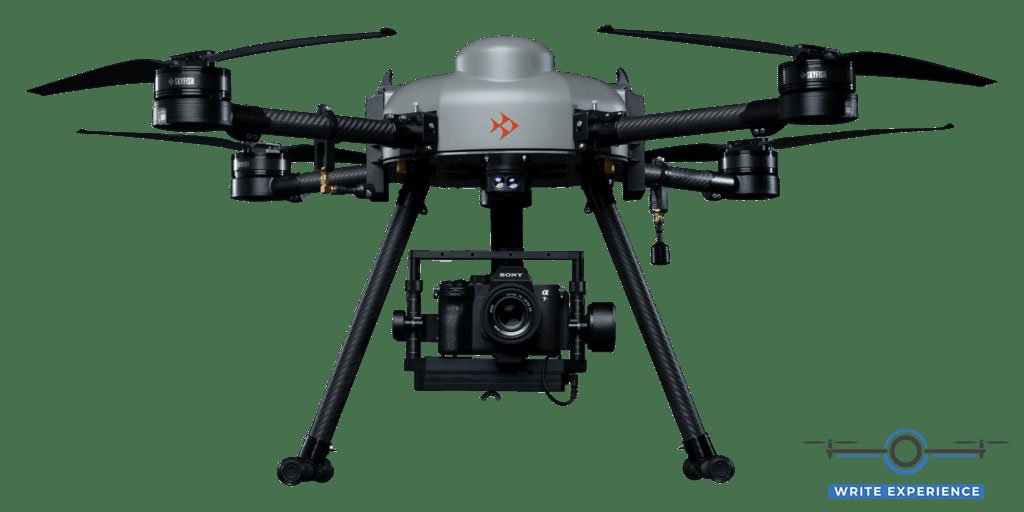
Skyfish M4 drone is a commercial drone designed for infrastructure inspection, engineering-grade measurement, thermal tracking and analysis, surveying, and 3D modeling. It is a sensor-agnostic drone, meaning that it can be configured with a variety of sensors, including photogrammetry cameras, LiDAR scanners, and gas leak detectors.
| Feature | |
| Dimensions (unfolded) | 1295 x 1176 x 498 mm (51 x 46.3 x 19.6 in) |
| Maximum gross takeoff weight | 10.9 kg (24.0 lb) |
| Maximum speed | S Mode: 65.0 mph / P Mode: 38.0 mph / A Mode: 51.4 mph |
| Flight modes | Manual, Guided, Loiter, RTL, Stabilize, or custom modes |
| Camera | 4K HDR video camera with 30x optical zoom |
| Maximum flight time | 40 minutes |
| Operating temperature range | -20°C to 50°C (-4°F to 122°F) |
| Maximum ascent/descent speed | 16.4 ft/s |
Pros:
- High-resolution imaging capabilities for detailed data collection
- Advanced automation features streamline complex surveying tasks
- Suitable for various industries, including agriculture, construction, and environmental monitoring
- Long flight endurance provides extended coverage in a single mission
- Compact and portable design for easy transportation to remote locations
Cons:
- Higher initial investment compared to entry-level drones.
- Require some technical expertise for optimal operation and data processing.
- Smaller payload capacity than some heavy-lift drones.
- Limited resistance to harsh weather conditions may restrict usability in adverse environments.
- May face regulatory restrictions in certain regions due to advanced capabilities.
8. Harris Aerial H6 HL
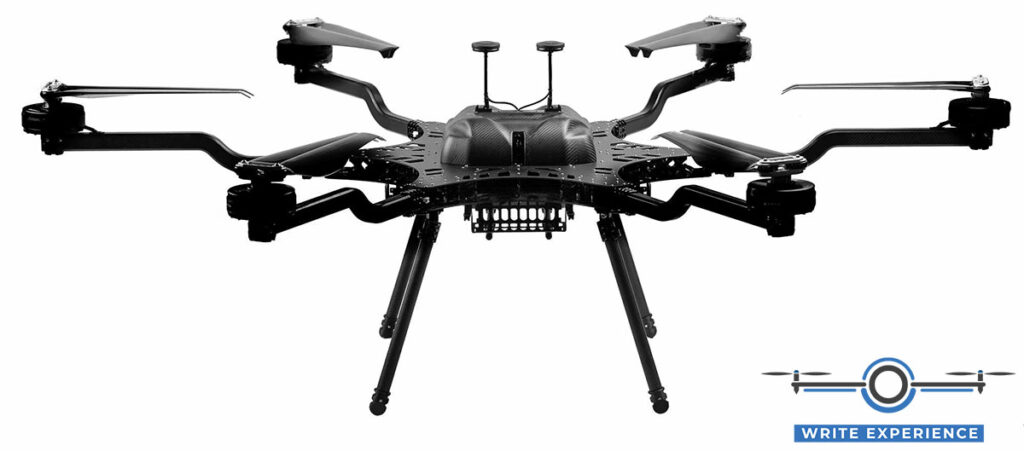
We highly recommend the Harris Aerial flagship heavy-lift UAV Carrier H6 HL. This exceptional drone was developed to address the need for a heavy-lift multirotor UAV that can handle payloads beyond the capacity of ordinary commercial drones. The H6 HL has been meticulously designed, with a focus on payload capability and flight readiness, incorporating over four years of development expertise.
| Feature | |
| Dimensions (unfolded) | 640.5 x 705.5 x 699.7 mm |
| Maximum takeoff weight | 95 kg |
| Max payload | 40 kg |
| Diagonal wheelbase | 3167 mm |
| Max speed | 33.6 mph |
| Flight time | 45 min (no payload) |
| Battery type | 6S1P Lipo (8 batteries) |
| Camera compatibility | Various imaging payloads |
| Radio frequencies | 2.4 GHz (ISM), 902-928 MHz |
Pros:
- Offer over 300 lbs of thrust to carry heavy payloads
- The innovative slide rail shortens the time to launch while still ensuring security
- Ideal for surveying, payload delivery, or transporting search and rescue equipment to remote areas
Cons:
- Require a steeper learning curve
- May face stricter regulations
- It’s less portable compared to smaller drones.
9. Inspired Flight IF800 Tomcat
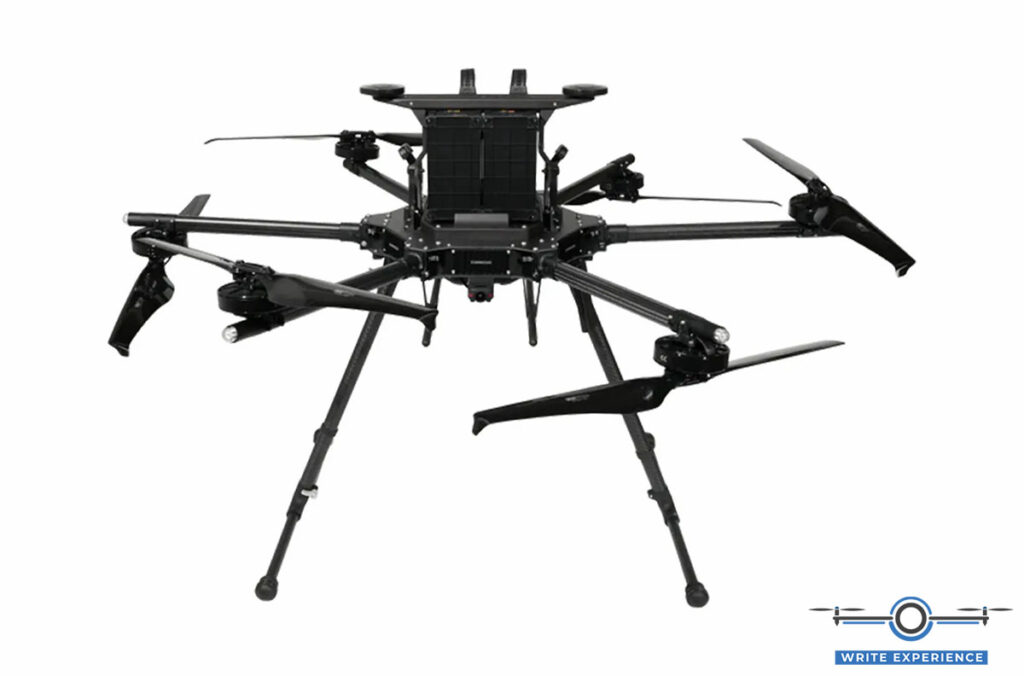
The Inspired Flight IF800 Tomcat is a highly recommended drone for a range of missions. With advanced technology and user-friendly design, it excels in high-resolution imaging for surveying, agriculture, and more.
| Feature | |
| Dimensions (unfolded) | 135 x 116 x 45 cm |
| Empty weight (w/o batteries) | 3.5 kg |
| Maximum gross takeoff weight | 10.7 kg |
| Max payload capacity | 3.0 kg |
| Flight time (with 1.5kg payload) | 40 min |
| Max air speed | 51 mph |
| Flight controller | CubePilot Cube Blue H7 |
Pros:
- High-quality, detailed aerial imaging capabilities
- Streamlined automation for complex surveying tasks
- Versatility across multiple industries
- Extended flight endurance for extensive coverage
- Portability and suitability for remote operations
Cons:
- Higher initial investment
- Requires technical proficiency for optimal use
- Sensitivity to adverse weather conditions
10. Parrot Anafi Ai
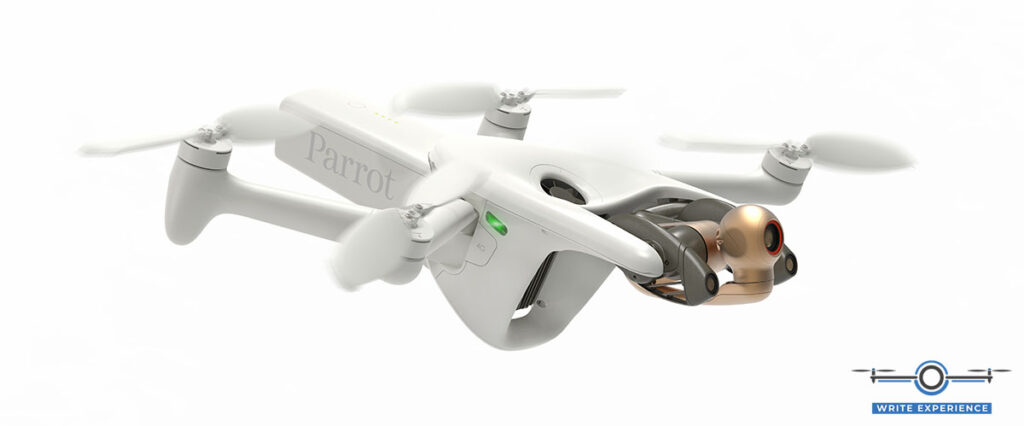
The Parrot Anafi Ai is an advanced UAV with high-resolution imaging capabilities, making it ideal for tasks like surveying and agriculture. It features sophisticated automation, streamlining complex missions and enhancing efficiency.
| Feature | |
| Dimensions (unfolded) | 320x440x118 mm |
| Weight | 898 g / 1.98 lb |
| Maximum flight time | 32 minutes |
| Video Resolutions | – 4K UHD: 3840×2160 – 1080p: 1920×1080 |
| Photo Resolution | 48 MP, high-quality images with 6x zoom capability |
| Battery type | High-density LiPo (262 Wh/kg) |
| Noise emission at 1 m (3 ft) | 81 dB |
| IP53 certified | dust- and rain-resistant |
Pros:
- High-resolution 48 MP camera with 6x zoom and 4K video recording
- Strong cybersecurity measures, including FIPS140-2 compliance
- Autonomous flight features and photogrammetry capabilities
- Compact and portable design for easy deployment
- Open-source app and SDK for flexibility and customization
Cons:
- Limited maximum flight time of 32 minutes.
- Internet connectivity is required for some features.
- Some technical expertise may be needed for advanced customization.
- Performance may be affected in extreme weather conditions.
How To Choose The Right USA-Made Drone
Selecting the perfect USA-made drone is an exciting journey, whether you’re a beginner or a seasoned enthusiast. Here’s how to make the right choice:
Types of Drones
Large Outdoor Drones: Ideal for high-resolution outdoor photography and videography.
Smaller Toy Drones: Budget-friendly for indoor or casual use, often controlled via smartphone apps.
Larger drones come with dedicated controllers, while smaller drones are typically app-controlled.
Features to Prioritize
- Battery Life: Plan for around 30 minutes of flight time; consider spare batteries.
- Brushless Motors: Quieter and more durable.
- Camera Quality: Focus on photo and video resolution.
- Headless Mode: Beginner-friendly control simplification.
- Integrated GPS: Enhances stability and offers features like return-to-home.
- Follow-Me Mode: Allows the drone to track and follow you.
- Gimbal Stabilization: Keeps the camera steady, especially during challenging flights.
- Obstacle Avoidance: A premium feature to prevent collisions; check user reviews.
- Range: Follow FAA regulations for visual contact with the drone.
Before flying, familiarize yourself with FAA rules to ensure safe and responsible drone operation.
Where Can You Buy Them?
If you’re in the market for a USA-made drone, consider these options for purchasing:
- Official Manufacturer Websites: Many US companies offer their products directly, providing a comprehensive view of available models, features, and pricing.
- Authorized Dealers and Local Retailers: Visit authorized dealers and local drone retailers to receive expert guidance and see the products in person.
- Online Marketplaces: Reputable online marketplaces like Amazon and B&H offer a wide selection of drones, including those made by US manufacturers.
- Online Communities and Forums: Connect with fellow drone enthusiasts in online communities and forums where you may find new and used drones, including American-made ones, often at attractive prices.
- Drone Shows and Expos: Keep an eye out for drone events in your area, as they present opportunities to view drones up close and possibly secure exclusive discounts.
FAQs
What’s The Real Deal With ‘Made In America’ Drones?
According to the Federal Trade Commission (FTC), a product must be “all or virtually all” made in the United States to be labeled as such. This means that all significant parts and processing must be of US origin.
There are several reasons why companies choose to label their drones as “made in America.” They do it to support local industry and create jobs in the United States while ensuring product quality.
The Trade Agreements Act (TAA) also requires the US government to purchase US-made products whenever possible. This means government agencies and contractors are more likely to buy USA-made drones.
Are EXO Drones Produced In The US?
No, they are not. EXO Drones are manufactured in Hong Kong by a company called EXO Technology. Nevertheless, EXO Technology is a US-based company, and the EXO drones are designed and marketed in the United States.
Conclusion
The drone industry is a thriving hub of innovation and technological advancement, offering a diverse range of drones catering to enthusiasts, professionals, and defense applications. Whether you’re seeking a consumer-grade drone to capture stunning aerial footage or a commercial-grade drone for demanding missions, USA-made drones offer the perfect solution.

